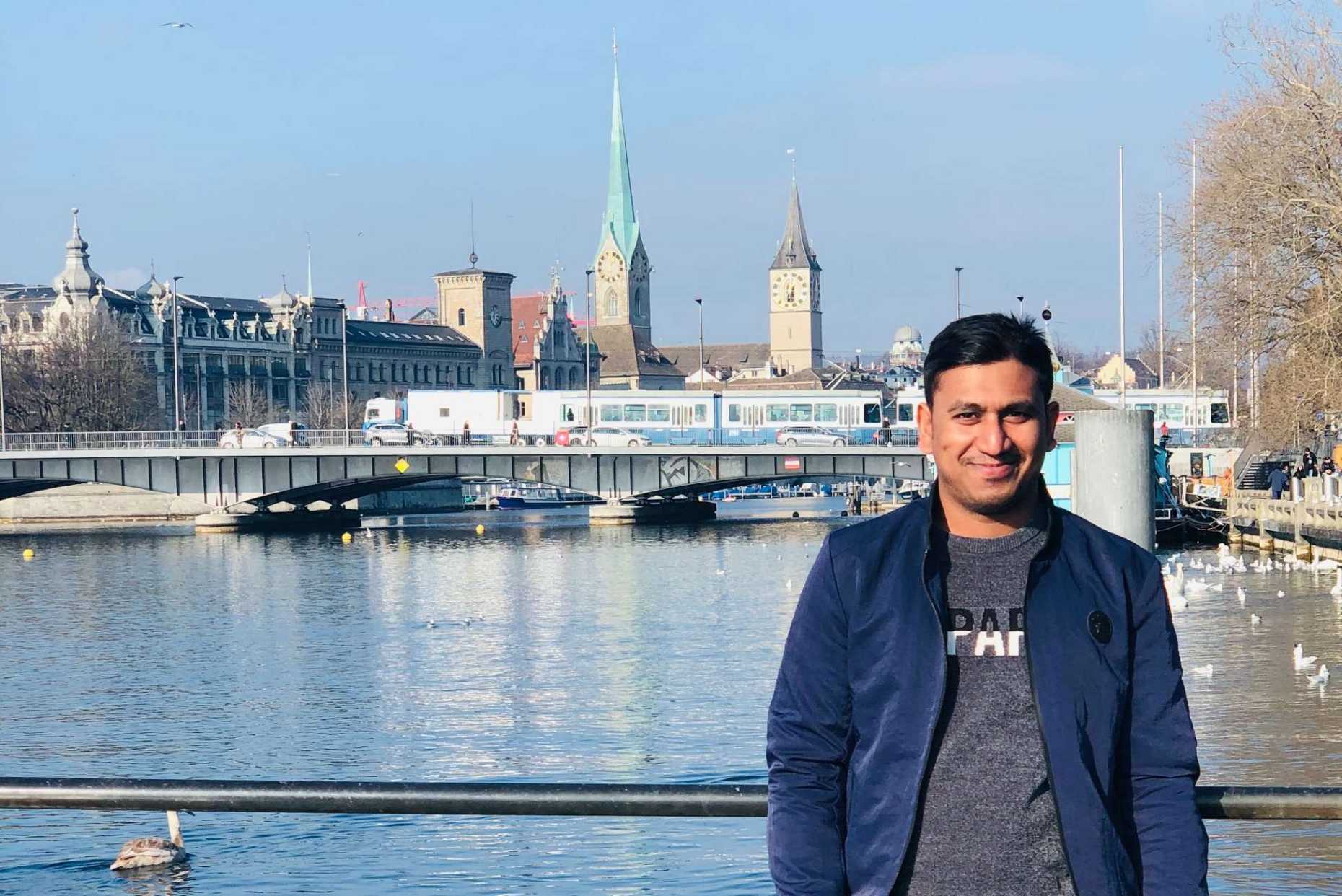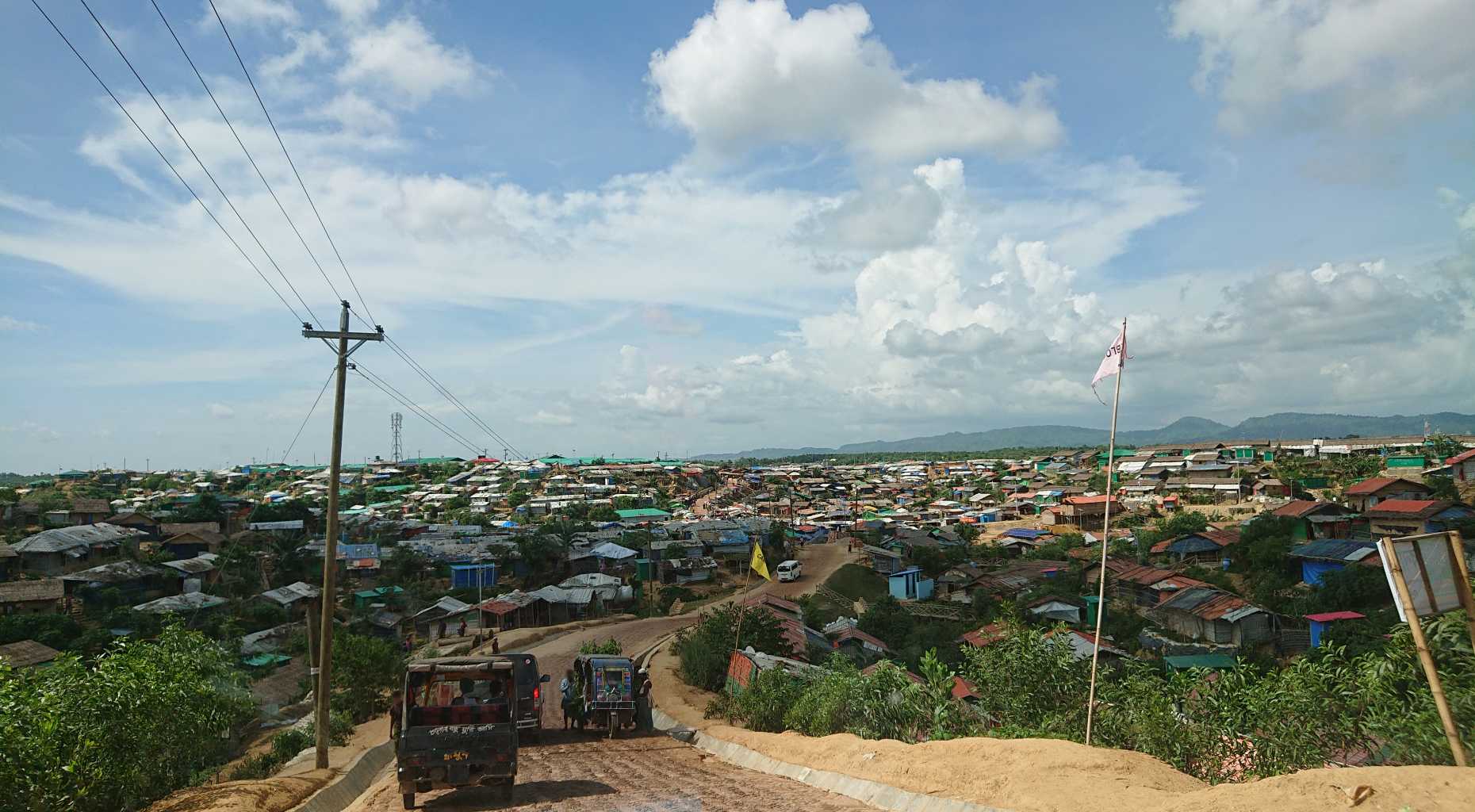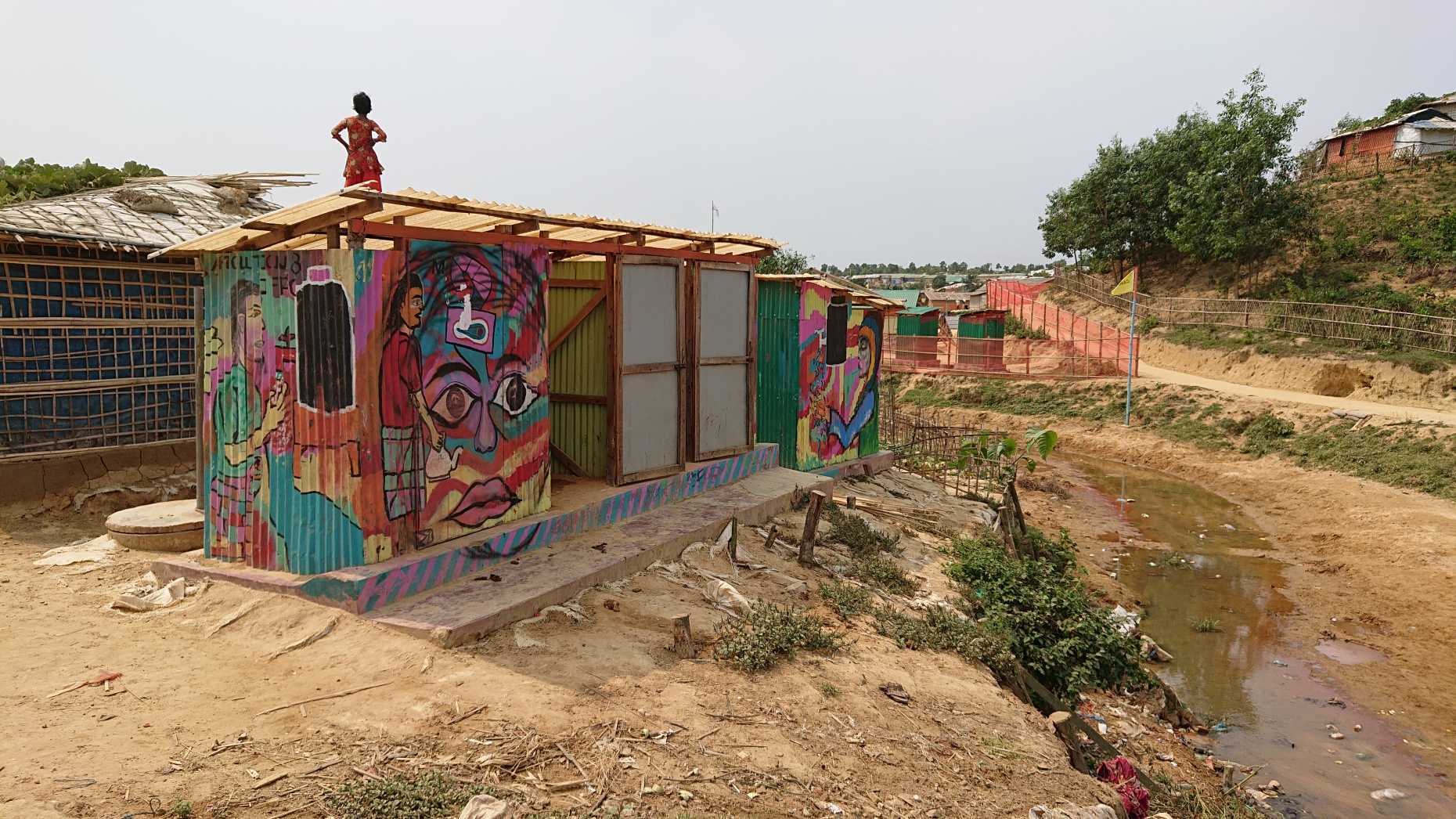Meet Shafiur Rahaman
We would like to introduce you to Shafiur Rahaman, a Research Project Manager for Eawag in the Rohingya refugee camps at Cox’s Bazar in Bangladesh. Shafiur is coordinating the project activities of the ETH4D Research Challenge “Community governance of emergency sanitation” in the field. The project examines the governance structure of sanitation interventions and tests innovative community-based monitoring of sanitation systems.
Before joining the research project, Shafiur was a fellow in external page Eawag’s Partnership Programme, which provides talented students from developing countries with the opportunity to do research at Eawag. In this interview, he talks about the challenges of his work in the refugee camps – especially during the COVID-19 pandemic, his experience as an EPP fellow in Zurich, and his advice for building strong partnerships between researchers and collaborators in the field.

Shafiur, how do you support the ETH4D Research Challenge project and what does a typical working day look like for you?
I started coordinating this project during a critical situation where the whole world is suffering from the COVID-19 pandemic. Altogether, in this new normal situation, we are trying our best to carry out this project considering all the restrictions and limitations. My basic role is to coordinate the project activities at the field level. Therefore, communication with the local partners and project managers from Switzerland, providing inputs in setting up activities, recruiting staff, timeline and budget management, field logistics, reviewing project materials and documents are some of my regular activities. Currently, I am supporting mostly from distance. We are almost done with the preparatory work and taking this project to the next phase.
What are the biggest challenges of your work in the refugee camps?
The Rohingya refugee crisis is one of the most complex humanitarian emergencies in the world. Coordinating with the government, donors and implementing partners is challenging and time-consuming. Across Cox’s Bazar, nearly one million Rohingya refugees live in overcrowded, unsanitary conditions. Working in the camps becomes more challenging during the monsoon season. Hilly terrain, muddy areas, flooding, and other environmental conditions make life difficult for both the refugee population and the aid workers. Communicating with the refugees is another challenge as they speak a different dialect, which makes it necessary to hire translators or volunteers from the host community for effective communication.
How has the current COVID-19 pandemic changed the situation in the camps and how has it affected your work?
As COVID-19 spreads through Bangladesh, the densely populated camps and adjacent host communities are at higher risk of transmission. Maintaining physical distance is almost impossible with poor access to soap or clean water. During the COVID-19 pandemic, only actors providing essential services such as health, nutrition, food, and WASH are allowed to enter into the camps with prior approval. Due to the current situation, many tasks have been delayed. Most of our communication has been shifted to online platforms, which is not always ideal. Overall, the uncertainty of the pandemic puts pressure on our team.

Before you worked on this project, you were an EPP Fellow at Eawag. Tell us a bit about your academic and professional background and your experience as an EPP fellow?
I have a Master’s degree in Public Health from Tehran University of Medical Sciences and a Bachelor’s of Science degree in Physiotherapy from the University of Dhaka. I also have nearly 6 years experience in healthcare settings in the development and emergency context. Before joining Eawag as an EPP Fellow, I was working with external page Action Against Hunger for which I was coordinating hygiene promotion activities of WASH partners across the whole refugee response in Cox’s Bazar.
During that time I met consultants from external page RANAS Ltd., an Eawag spin-off, who introduced me to the EPP Fellowship. I consider myself very lucky to have been given this opportunity. In January this year, I moved to Zurich and joined the Sandec department. Eawag provides you a strong scientific and professional environment that is so inspiring for me and my career. I learned a lot from different perspectives and built a strong professional network. Although I left Zurich, my journey with Eawag still continues. Coordinating the research project in Cox’s Bazar is also a great opportunity for me to contribute from what I have learned so far.

Do you have advice for ETH researchers who want to work with collaborators in the field? What do you think are the ingredients for a good collaboration?
Building trust, mutual respect, and maintaining professional relationships are important elements of strong collaborations. Updating each other regularly and sharing the experience from different perspectives will help both the researchers and collaborators to take timely decisions and bring the best possible outcomes. Sometimes we have to be flexible to understand the real scenario from the field and act accordingly. Maintaining transparency in all stages of the project from both parties is crucial and helps to ensure that there are no sudden surprises. While we are appreciating or communicating success, it is also important to admit the failures and find ways to overcome them through collective effort.
What does future research in the humanitarian context of Cox's Bazar or Bangladesh look like?
There are a lot of areas to explore not only in the Rohingya refugee humanitarian context in Cox’s Bazar but also in the development context in other parts of Bangladesh. More collaborative research in different areas would really help researchers to gather new experiences through cross-learning and develop context-specific tools and techniques to create new evidence. Increasing collaborations with more organisations, research institutes, and universities would expand the scope of work.